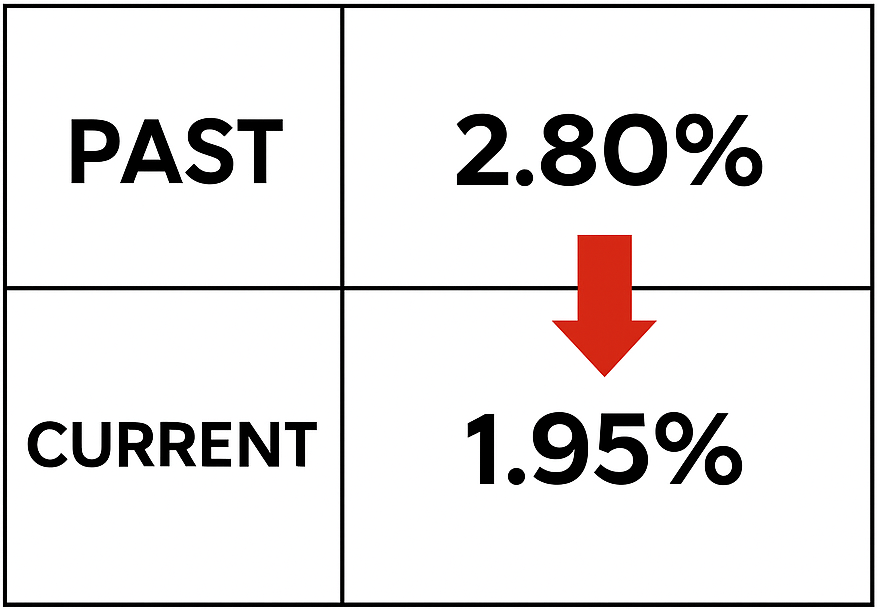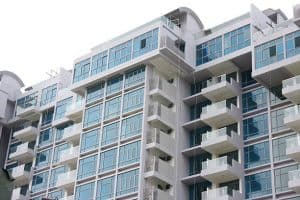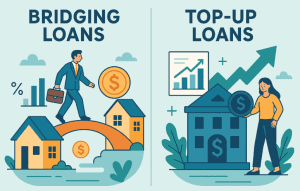Looking for the lowest mortgage rates in Singapore this July 2025? You’re not alone—finding the right lender with the best deal can save you thousands.
At Ace Mortgage, we’re here to help you make sense of the latest rates, from fixed to floating, and everything in between. Whether you’re buying your first home or refinancing, this guide covers all the must-knows, plus tips on comparing lenders and saving money.
Ready to get started? Let’s find the best rates together! Don’t forget to check our home loan rates in Singapore for the freshest deals straight from the experts.
Why Compare Mortgage Rates in July 2025?
Choosing the right home loan rate in Singapore isn’t a one-and-done deal—it can be the difference between saving thousands or paying more in the long run. Let’s break down why this matters now.
How Mortgage Rates Impact Monthly Repayments
Even a small difference in rates can mean hundreds of dollars difference in your monthly payments. For instance, a 0.5% change might look tiny but can add up to S$150 or more per month—money you could put towards renovations or savings instead.
Expert tip: Always use a reliable mortgage repayment calculator to estimate what you’ll pay each month—Ace Mortgage’s calculator makes it easy.
Rate Impact on Monthly Repayments (Hypothetical SGD 800k Loan)
| Interest Rate (p.a.) | Monthly Repayment |
|---|---|
| 2.05% | S$2,985 |
| 2.55% | S$3,130 |
| 3.05% | S$3,275 |
Savings of ~S$145/month going with the lower rate.
July 2025 Market Overview: SORA Dominance & Rate Trends
SORA has officially overtaken SIBOR/SOR as Singapore’s primary benchmark. As of early July:
- 1M Compounded SORA ≈ 1.66% – 1.69%
- 3M Compounded SORA ≈ 2.03% – 2.05%
With forecasts suggesting a drop to around 2.5% by year-end, now’s the time to compare rates across lenders before the next dip.
Expert tip: If you’re confident in declining rates, go for a floating SORA package—but stay flexible to reprice or refinance later.
How Brokers Help You Save Thousands
Working with a mortgage broker like Ace Mortgage can open doors to exclusive packages that aren’t always advertised. Brokers can negotiate:
- Lower spreads on floating SORA loans
- Fee waivers on partial prepayment or early repayment
- Special rates for refinancers or new buyers
We recently helped a homeowner switch from a 2.30% package to a 1M SORA + 0.25% deal—saving them over $250/month or $12,000 over five years. That’s why comparing rates—and using the right broker—pays off big time.
Types of Mortgage Packages Explained
When it comes to choosing the right home loan rate in Singapore, understanding your options is key. Whether you’re a first-time buyer or refinancing, knowing the differences between fixed, floating, and hybrid packages helps you make a choice that fits your financial goals and risk appetite.
Fixed-Rate Loans: Predictability vs. Flexibility
A fixed-rate home loan keeps your interest rate constant for a set period—usually 2 to 5 years. This means predictable monthly payments, which is great for budgeting.
Why choose fixed rates?
- Peace of mind: no surprises in your monthly payments.
- Easier planning: perfect for those who like stability.
But watch out for:
- Slightly higher rates than floating packages, especially at the start.
- Early repayment penalties if you decide to refinance before your lock-in ends.
Expert tip: A fixed-rate loan is a smart pick if you expect rates to rise or just want peace of mind. For the latest offers, check out our best fixed rate home loan Singapore guide.
Floating-Rate Loans: SORA vs. SIBOR Explained
Floating-rate home loans fluctuate with market interest rates—meaning your monthly repayments can go up or down. In Singapore, most banks have transitioned to using SORA (Singapore Overnight Rate Average) as the main benchmark, replacing the old SIBOR and SOR rates.
- SORA: Transparent, market-based, and now the standard in Singapore’s mortgage landscape.
- SIBOR: Phased out but still referenced in some older packages.
- SOR: No longer offered, but may exist in legacy loans.
Personal insight: If you’re comfortable with some risk and want to take advantage of potentially lower rates, a floating SORA package can save you money. Just be prepared for some rate volatility along the way.
Hybrid Packages: A Mix of Stability and Flexibility
Hybrid loans blend both fixed and floating rates—typically offering a fixed rate for the first few years, then switching to a floating rate.
Why go hybrid?
- Enjoy predictable payments at the start.
- Benefit from potential rate drops later.
Things to note:
- Less common in Singapore, so not all banks offer them.
- May require guidance from a mortgage broker to find the right deal.
I think that Hybrid packages can be a great fit if you’re on the fence about where rates are headed.
Key Factors to Consider Before Choosing a Mortgage
Choosing the right home loan in Singapore is about more than just picking the lowest rate—it’s about finding the best fit for your financial goals and lifestyle. Here’s what to look out for before locking in your loan:
Interest Rates, Lock-in Periods, and Penalties
Interest rates are the headline, but there’s more to watch for:
- Interest Rates: Lower rates mean lower monthly payments, but always read the fine print—some banks offer attractive “teaser” rates that jump after the first year.
- Lock-in Periods: Most home loans come with a lock-in period of 2–3 years, during which refinancing usually triggers penalties.
- Early Repayment Penalties: Typically around 1.5% of the outstanding loan amount, which can eat into your savings if you need to refinance early.
Remember to always ask your broker or lender to clarify these terms upfront. For updated rates and lock-in periods, check out our best mortgage loan rates Singapore guide.
Eligibility: TDSR, MSR, and LTV Explained
Singapore’s mortgage rules help prevent borrowers from taking on more than they can handle. Here’s what you need to know:
- TDSR (Total Debt Servicing Ratio): Caps your total monthly debt repayments (including your mortgage) at 55% of gross monthly income.
- MSR (Mortgage Servicing Ratio): Applies to HDB flats and Executive Condos (ECs), capping home loan repayments at 30% of gross monthly income.
- LTV (Loan-to-Value Ratio): Determines how much you can borrow—typically up to 75%–80% of the property’s value, depending on your existing loans.
If you’re self-employed or have variable income, calculating these can get tricky. Our mortgage brokers in Singapore can guide you through the process.
Additional Costs: Legal Fees, Valuations, and Insurance
Home loans come with additional costs that can catch borrowers off-guard:
- Legal Fees: For conveyancing and paperwork, usually around S$2,000–S$3,000.
- Valuation Fees: Required by lenders to confirm the property’s market value.
- Fire Insurance: Mandatory for HDB flats and recommended for private properties to protect your investment.
Some banks offer subsidies for legal and valuation fees—ask your broker to help negotiate the best deal. To budget these costs, try our mortgage loan repayment calculator.
Comparing Singapore’s Top Mortgage Lenders (July 2025)
With interest rates constantly shifting, finding the right lender can make a huge difference in your monthly payments. Let’s explore how the top banks in Singapore stack up this July 2025—and how you can get the best deal for your home loan.
DBS, OCBC, and UOB Home Loan Rates
Singapore’s “big three” banks—DBS, OCBC, and UOB—remain popular choices for homebuyers. Here’s how their rates and features compare:
DBS, OCBC, and UOB Home Loan Highlights (January 2026)
| Bank | Fixed Rates (2-Year) | Floating SORA Spreads | Special Features |
|---|---|---|---|
| OCBC | ~1.50% p.a. | 3M SORA + 0.25% | Legal fee subsidies, easy refinancing. |
| DBS | ~1.48% p.a. | 3M SORA + 0.28% | Transparent terms, flexible refinancing. |
| UOB | ~1.50% p.a. | 3M SORA + 0.28% | Consistent rates, simple application process. |
Ace Mortgage Insight: These banks often have exclusive promotions—always check the Singapore home loan rates page for the latest deals.
Maybank, Standard Chartered, and CIMB Packages
These banks might not be the first names that come to mind, but they often surprise with competitive offers and unique perks:
Maybank, Standard Chartered, and OCBC Home Loan Highlights (January 2026)
| Bank | Floating SORA Spreads | Special Features |
|---|---|---|
| Standard Chartered | 1M SORA + 0.25% | Interest-offset loans, cash management. |
| OCBC | 1M SORA + 0.25% | Promo cashback, quick approvals. |
| Maybank | 1M SORA + 0.25% | Attractive refinancing, flexible packages. |
Some banks have stricter documentation requirements—consult our mortgage brokers in Singapore to make sure you qualify.
HSBC and Other Foreign Banks: Premium Rates and Flexibility
Foreign banks often cater to buyers with larger loans or unique financing needs:
- HSBC frequently offers premium packages with features like flexible prepayment options—ideal for investors or high-net-worth borrowers who value flexibility.
- Other Foreign Banks sometimes provide deals tailored to expats or globally mobile clients, with benefits like overseas property financing and multi-currency repayment options.
Personal Tip: Foreign banks can be a great choice for specific needs, but eligibility requirements might be stricter. Let our Ace Mortgage experts help you navigate the fine print and find the right fit.
How to Find the Cheapest Home Loans in Singapore
Finding the cheapest home loan rates in Singapore isn’t just about picking the bank with the lowest number on paper. It’s about comparing rates, lock-in periods, and features to make sure you’re truly getting the best deal for your budget and goals. Let’s break it down:
Who Offers the Lowest Fixed Rates Right Now?

Fixed rates offer stability and peace of mind—perfect for buyers who want to plan their finances with confidence.
- DBS: Offers some of the most competitive fixed rates, starting around 2.15% p.a. for a 2-year lock-in.
- OCBC: Fixed rates from ~2.20% p.a., plus perks like legal fee subsidies.
- UOB: Fixed rates from ~2.25% p.a., with flexible refinancing options.
My Personal Tip: Always compare lock-in periods and early repayment penalties. For the latest offers, check our best home loan rates Singapore page.
Lowest Fixed Rates (January 2026)
| Bank | Fixed Rate (2-Year) | Lock-in Period |
|---|---|---|
| DBS | ~1.48% p.a. | 2 years |
| OCBC | ~1.50% p.a. | 2 years |
| UOB | ~1.50% p.a. | 2 years |
Which Lenders Have the Best Floating SORA Packages?

Floating SORA packages can be attractive, especially if rates trend lower. Here’s who’s leading the pack this month:
- Maybank: 1M SORA + 0.70%, with flexible refinancing options.
- CIMB: 1M SORA + 0.75%, plus occasional promo cashback offers.
- DBS: 1M SORA + 0.65%, one of the lowest spreads available.
Ace Mortgage Insight: Floating rates can move with the market, so it’s smart to stay updated. Visit our Singapore home loan rates page for the latest spreads and insights.
Top Floating SORA Packages (January 2026)
| Bank | Floating SORA Spread | Features |
|---|---|---|
| SCB | 1M SORA + 0.25% | Cashback promos, easy application. |
| Maybank | 1M SORA + 0.25% | Flexible refinancing, quick approvals. |
| OCBC | 1M SORA + 0.25% | Consistent rates, reliable service. |
Should You Wait or Lock-in Now?
Wondering if now is the right time to secure a home loan—or should you wait for rates to drop? Here’s what to consider:
- Market Forecasts: Rates might dip further later in 2025, but predicting the market is never foolproof.
- Your Risk Appetite: If you prefer stability, a fixed rate now might be worth the peace of mind.
- Personal Circumstances: Major life changes (job switch, family plans) might affect your ability to refinance or reprice later.
A floating rate might save you money if rates trend lower, but be ready to adapt if rates start climbing. Our mortgage brokers in Singapore can help you decide.
Step-by-Step Guide to Applying for a Home Loan
Applying for a home loan in Singapore doesn’t have to be complicated. Here’s a simple guide to walk you through each step, from getting pre-approval to getting your keys.
How to Get Your IPA or HFE Approved
Before you start house hunting, you’ll need to know how much you can borrow:
- IPA (In-Principle Approval): Issued by banks for private property loans. It’s a conditional loan offer based on your income, credit score, and other financials.
- HFE (HDB Flat Eligibility): Issued by HDB for buyers who plan to take an HDB loan, buy a new flat, or get CPF housing grants. It consolidates eligibility checks into one step, streamlining the process.
I would advise you to prepare these documents before applying:
- Latest payslips or income statements
- CPF contribution history
- Credit card and other loan statements
For a deeper dive into IPA and HFE, visit our mortgage brokers in Singapore page for expert guidance.
Booking Your Property and Exercising the OTP
Once you find your dream home, you’ll move to the next step:
- Option to Purchase (OTP): A legal agreement that gives you exclusive rights to buy the property.
- Booking Fee: Usually 1% of the purchase price, paid when you sign the OTP.
- Exercise Fee: Typically 4% more (to make up the standard 5% deposit) when you confirm the purchase.
Personal Tip: Review the OTP carefully, and don’t rush into signing—your mortgage broker can help explain any terms you’re unsure about.
Loan Disbursement and Legal Conveyancing
After exercising the OTP, it’s time to finalize the mortgage and handle the paperwork:
- Loan Application: Submit all required documents to your chosen lender.
- Legal Conveyancing: Your lawyer will manage the property transfer and coordinate with CPF if you’re using funds.
- Loan Disbursement: Once all documents are signed and approved, the bank releases funds to the seller.
Some banks offer subsidies on legal fees—ask your broker to negotiate! Use our mortgage loan repayment calculator to estimate your monthly payments and plan your finances.
When and How to Refinance or Reprice
Refinancing or repricing your home loan in Singapore can help you save money on interest, but it’s important to know the differences and when to make a move. Let’s break it down:
When Is the Best Time to Refinance?
Refinancing lets you switch your existing home loan to another bank, potentially unlocking lower rates or better features. But when’s the right time to act?
- End of Lock-in Period: Most banks charge penalties if you refinance before the lock-in ends—usually around 2–3 years.
- Interest Rate Drops: If market rates have fallen since you first took your loan, refinancing can help you save on monthly payments.
- Major Life Changes: New job, family growth, or a pay raise might make refinancing worthwhile.
Rates can change fast—always compare the latest offers before committing. For the freshest deals, visit our Singapore home loan rates page.
Refinance vs. Reprice: Key Differences
Not sure if you should refinance or just reprice? Here’s a quick breakdown:
Refinancing:
- Switch to a different bank.
- Often comes with lower rates and promotional perks.
- May involve legal fees and valuation fees (though some banks offer subsidies).
Repricing:
- Stay with your current bank but switch to a new rate package.
- Typically easier and faster than refinancing.
- Fewer legal steps and lower fees.
Repricing might be simpler, but refinancing can save more if the rate difference is significant. Our mortgage brokers in Singapore can help you weigh your options.
Fee Subsidies and Legal Cost Considerations
Before you refinance or reprice, consider the extra costs that might eat into your savings:
- Legal Fees: Usually S$2,000–S$3,000 for refinancing, though many banks offer subsidies.
- Valuation Fees: Paid to confirm your property’s market value—often covered by banks as a perk.
- Penalty Fees: Check if you’re still in your lock-in period—early exit fees are typically 1.5% of the outstanding loan.
Personal Tip: Some banks cover all or part of these fees to attract new customers—always ask! Use our mortgage loan repayment calculator to see how refinancing or repricing could affect your payments.
What’s Next: Singapore Mortgage Market Outlook 2025
Navigating the Singapore property market means staying ahead of mortgage trends. As we move through 2025, understanding where interest rates might go—and how to position yourself—can make a significant difference in your home loan decisions.
Are Rates Expected to Drop Further This Year?
Interest rates have been volatile in recent years, but the current outlook suggests a possible easing towards the end of 2025.
- SORA Rates: Economists forecast SORA may stabilise or even dip slightly, given cooling inflation and a cautious stance by the US Federal Reserve.
- Fixed Rates: Banks may adjust fixed-rate packages downwards as funding costs ease.
- Market Dynamics: External factors like global economic conditions and Singapore’s monetary policy will continue to influence local rates.
Ace Mortgage Insight: Staying updated on the latest home loan rates in Singapore is essential. Visit our Singapore home loan rates page for the freshest information and expert commentary.
Should You Choose Fixed or Floating in 2025?
Choosing between fixed and floating rates depends on your financial situation and risk tolerance.
- Fixed Rates: Offer predictability in repayments. Good if you’re risk-averse and want to budget with confidence.
- Floating Rates: Usually lower at the start, but can fluctuate depending on market conditions. Suitable if you expect rates to drop or remain stable.
- Hybrid Packages: Combine both features—starting with a fixed rate before switching to a floating rate.
Fixed rates can be higher now, but if you expect rates to decline, a floating SORA package might save you more. Our mortgage brokers in Singapore can help you weigh the options.
Expert Tips for Getting the Best Deal
Securing the best mortgage deal goes beyond comparing headline rates.
- Use a Mortgage Broker: They can access exclusive packages and negotiate better rates on your behalf.
- Check Subsidies: Some banks offer subsidies for legal and valuation fees, reducing upfront costs.
- Review Regularly: Even after securing your loan, review your mortgage annually to see if refinancing or repricing could save you money.
The right strategy can save you thousands over the loan’s lifetime. For a comprehensive comparison and expert guidance, visit our best mortgage loan rates Singapore page or connect with our brokers today.
FAQs and Mortgage Glossary
Even the most experienced buyers have questions when it comes to home loans in Singapore. Here are answers to some of the most common questions we get, plus a handy glossary to help you understand the key terms.
What’s the Difference Between SIBOR, SOR, and SORA?
Understanding these rates can help you make a more informed decision:
- SIBOR (Singapore Interbank Offered Rate): Historically used as a benchmark for home loans. Phased out in 2024.
- SOR (Swap Offer Rate): Linked to USD/SGD forex swaps. Also phased out by 2024.
- SORA (Singapore Overnight Rate Average): The new benchmark. More transparent and less volatile, making it the standard for floating-rate packages today.
Most new home loans are pegged to SORA now, with banks offering competitive floating-rate packages. For the latest spreads and offers, visit our Singapore home loan rates page.
Can Foreigners or Self-Employed Borrowers Apply?

Yes, but with some important considerations:
- Foreigners: Typically need a higher down payment (often 20% or more) and may face stricter eligibility criteria.
- Self-Employed Borrowers: Need to show consistent income, usually through tax returns or CPF contributions. Banks may require additional documentation to assess eligibility.
- Other Requirements: Proof of income, credit history, and property type all factor into loan approval.
If you’re self-employed or a foreigner, a mortgage broker in Singapore can help you navigate the process and find the best deals.
What Are Early Repayment Penalties and Waivers?
Banks often charge penalties if you repay your loan early, especially during the lock-in period. Here’s what to know:
- Early Repayment Penalties: Usually around 1.5% of the outstanding loan amount. Applies if you refinance, fully redeem, or sell the property during the lock-in period.
- Waivers: Some banks may waive this penalty if you sell your property due to reasons like job relocation or financial hardship.
- Outside Lock-in Period: Once your lock-in period expires, you can refinance or repay without penalty.
Always check your loan agreement for details on early repayment clauses. For more tips, visit our mortgage loan repayment calculator to estimate your payments and plan ahead.
Conclusion and Next Steps

Choosing the right home loan in Singapore is a major financial decision—but it doesn’t have to be overwhelming. With the right information and guidance, you can secure the best deal for your budget and goals. Here’s how to wrap it all up and move forward confidently.
Recap: Choosing the Right Mortgage Lender

Let’s summarise the key takeaways:
- Compare rates and lock-in periods across top lenders like DBS, OCBC, UOB, Maybank, and HSBC.
- Understand the difference between fixed, floating, and hybrid packages.
- Check eligibility criteria (TDSR, MSR, LTV) and hidden costs (legal fees, valuation fees, penalties).
- Use a reliable mortgage broker in Singapore to negotiate the best deal and access exclusive rates.
Stay Updated: Bookmark This July 2025 Guide
Mortgage rates can change quickly. Bookmark this guide and refer back often to stay informed about the latest rates, packages, and lender promotions.
- Visit our Singapore home loan rates page for ongoing updates and expert insights.
- Follow trusted resources like HDB, CPF, and the Monetary Authority of Singapore (MAS) for policy changes and market trends.
Get a Free Mortgage Comparison from Ace Mortgage
Ready to take the next step? Ace Mortgage offers personalised guidance to help you:
- Compare rates across Singapore’s top banks.
- Understand your eligibility and financial options.
- Secure exclusive packages that save you money over the long term.
Visit our best mortgage loan rates Singapore page or connect with our brokers today to get started on your home loan journey.














